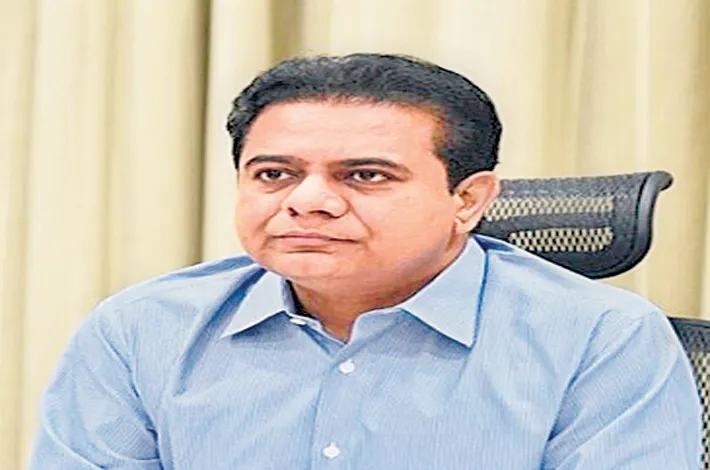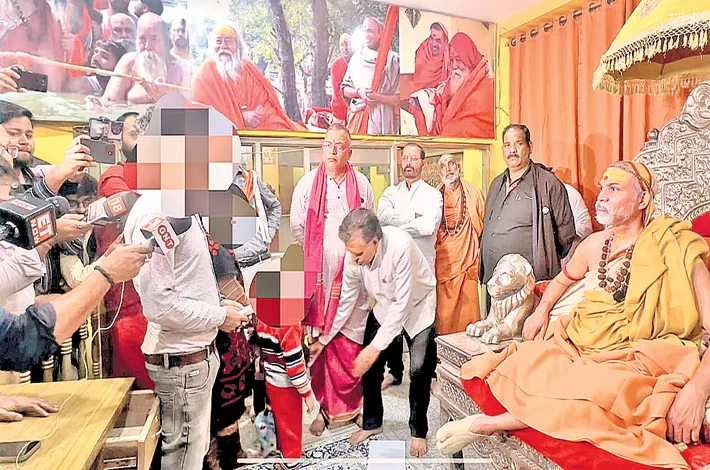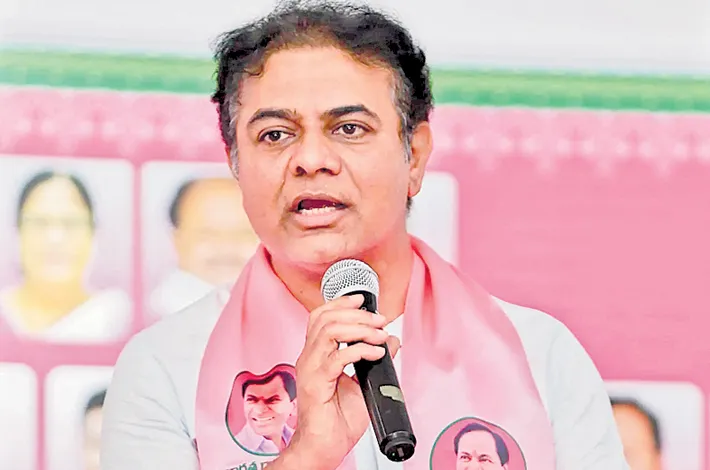BRS leveraging sympathy and strategy
19-09-2025 12:00:00 AM

metro india news I hyderabad
The impending by-election in Telangana's Jubilee Hills Assembly constituency has escalated into a high-stakes prestige contest, spotlighting the fragile urban dynamics that propelled the Congress to power in 2023 while exposing the Bharat Rashtra Samithi (BRS)'s enduring grip on Hyderabad's affluent heartland.
Triggered by the sudden demise of BRS MLA Maganti Gopinath on June 8, 2025, from a massive heart attack following a kidney-related surgery, the poll—expected around Diwali after the Election Commission of India's (ECI) special summary revision of voter lists concludes on September 25—serves as an early barometer for the ruling party's governance amid simmering discontent over unfulfilled promises. Though a solitary by-poll cannot equate to a statewide referendum, it amplifies the Congress's vulnerabilities in the capital, where it secured just two of 15 seats in the last Assembly elections, and offers the opposition a chance to rally sympathy votes and erode the incumbent's momentum.
Jubilee Hills, encompassing upscale neighborhoods like Banjara Hills and a diverse electorate of over 392,000 voters—including significant Andhra-origin settlers, Muslims (around 20-25%), Backward Classes (BCs), and upper-caste elites—has long been a BRS stronghold. In the 2023 elections, Gopinath clinched victory with 80,567 votes (48.7% share), trouncing Congress's Mohammed Azharuddin, the former cricketer-turned-politician, who garnered 64,212 votes (38.8%), by a margin of 16,355.
The All India Majlis-e-Ittehadul Muslimeen (AIMIM) trailed distantly with 7,848 votes (4.7%), underscoring the constituency's bipolar tilt between regional heavyweights. Congress's dismal urban showing then stemmed from multiple fissures: Andhra settlers, wary of post-bifurcation animosities, overwhelmingly backed the BRS for its pro-migrant policies, including land protections and economic incentives; anti-incumbency against the previous Telangana Rashtra Samithi (TRS, now BRS) regime had waned in Hyderabad's cosmopolitan pockets; and internal party rifts diluted the national wave that swept rural Telangana.
For the BRS, now rebranded and recalibrating post-2023 route, the by-election is a sympathy-driven lifeline. Working President K.T. Rama Rao (KTR) has swiftly positioned Gopinath's widow, Maganti Sunitha (often spelled Suneeta in local parlance), as the frontrunner, leveraging the emotional outpouring from the late MLA's three-decade legacy—from Telugu Desam Party (TDP) youth leader to BRS Hyderabad chief. KTR's meticulous groundwork—coordination meetings with cadres, strategy huddles with seniors, and quiet outreach to adjacent segments—signals a no-stone-unturned approach, bolstered by the party's top-down command structure under him and patriarch K. Chandrasekhar Rao (KCR).
A recent Codemo survey underscores this edge: BRS commands 52% support across castes, dipping to a robust 46.5% among minorities, rooted in Gopinath's welfare initiatives like urban infrastructure upgrades and settler aid. "Jubilee Hills remains anchored in BRS's track record," the poll notes, dismissing Congress's rhetorical flourishes as insufficient against proven delivery. Yet, risks loom: Over-reliance on sympathy could falter if voters perceive dynasty politics, especially with BRS's statewide image tarnished by corruption allegations.
The ruling Congress, buoyed by its lone prior by-poll triumph in Secunderabad Cantonment, faces internal tumult in candidate selection—a microcosm of its opaque high command dynamics. Chief Minister A. Revanth Reddy's recent review at his residence shortlisted three: serial aspirant Naveen Yadav, Working President Anjan Kumar Yadav, and Bonthu Rammohan, amid hectic consultations. Naveen, a BC leader and son of local strongman Chinna Srisailam Yadav, emerges as the frontrunner, his track record a compelling pitch for consolidation. In 2014, on an AIMIM ticket, he polled 39,500 votes (25.4%), finishing runner-up to Gopinath's TDP debut.
As an independent in 2018, he surged to 64,000-65,000 votes (38-40%), edging Congress's P. Vishnuvardhan Reddy (52,975) but trailing Gopinath's 68,979. By 2023, he withdrew his independent bid to back Azharuddin, earning goodwill from AIMIM's minority base and BC voters clamoring for representation. With Azharuddin placated via an MLC nomination—and whispers of a cabinet berth—BC leaders urge a Yadav ticket to preempt revolt, given the community's 15-20% sway. However, Congress's history of high-command overrides breeds resentment; denied aspirants have sabotaged candidates in past urban polls, potentially fracturing the anti-BRS coalition.
The Bharatiya Janata Party (BJP), third in 2023 with around 10%, eyes a spoiler role by courting TDP allies and Andhra fans. Plans to enlist Deputy CM Pawan Kalyan, whose star power resonates in Hyderabad's Telugu diaspora, could siphon 5-7% votes, per local chatter. Yet, BJP's limited local cadre hampers ambitions, positioning it as a marginal player unless urban Hindutva narratives gain traction.
Strategically, the by-election hinges on micro-mobilization: BRS's door-to-door sympathy drives versus Congress's development blitz on roads and water; minority outreach, where AIMIM's tacit support for Naveen could tip scales; and settler sentiments, now testing Congress's post-poll inclusivity pledges. A BRS win would embolden KTR's resurgence narrative ahead of 2028, signaling urban fatigue with Revanth Reddy's "six guarantees." Conversely, Congress victory—narrow as it may be—would affirm its Hyderabad revival, quelling murmurs of over-centralization.
As notifications loom by late September, Jubilee Hills encapsulates Telangana's polarized urban ethos: a blend of glamour, grievance, and granular caste calculus. In this glittering suburb, the real verdict may preview whether the Congress's rural mandate can urbanize—or if BRS's nostalgia offensive reclaims lost sheen. With voter rolls finalized imminently, the ECI's reforms—like capping booths at 1,200 voters—promise smoother polls, but the political theater remains fiercely unpredictable.
Blurb: For the BRS, now rebranded and recalibrating post-2023 route, the by-election is a sympathy-driven lifeline








